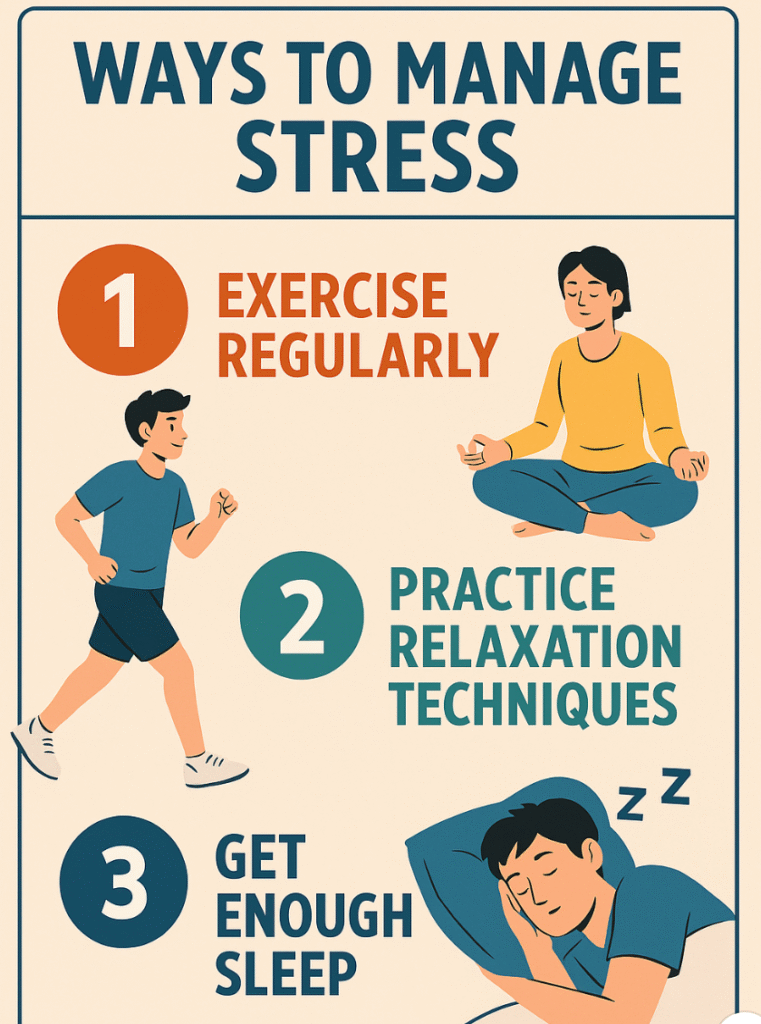Stress is one of the most pressing health challenges of the 21st century. While stress is a natural response to challenges, chronic stress can lead to a range of physical and psychological issues, including cardiovascular disease, anxiety disorders, weakened immunity, and even premature aging. Learning how to manage stress effectively is not only essential for mental well-being but also for long-term health.
Why Stress Management Matters
Chronic stress activates the body’s “fight-or-flight” response, releasing hormones such as cortisol and adrenaline. Over time, elevated cortisol levels can impair digestion, sleep, immunity, and heart function. According to the American Psychological Association (source), stress-related health problems are among the leading causes of doctor visits in the United States.
Key Stress Management Techniques
1. Regular Exercise
Physical activity is one of the most effective ways to combat stress. Exercise reduces cortisol, boosts endorphins (the body’s natural mood elevators), and improves sleep. Even simple activities such as walking, yoga, or stretching can reduce stress levels significantly.
2. Relaxation Techniques
Mindfulness meditation, deep breathing, and progressive muscle relaxation help calm the nervous system. Research published in JAMA Internal Medicine (link) shows that mindfulness-based stress reduction programs significantly decrease anxiety and depression.
3. Adequate Sleep
Sleep is a cornerstone of health. Without proper rest, the body cannot regulate stress hormones effectively. Adults need 7–9 hours of quality sleep per night to maintain resilience against daily challenges.
4. Balanced Nutrition
Diet plays a key role in stress management. Foods rich in omega-3 fatty acids, antioxidants, and vitamins (such as B-complex and magnesium) help regulate mood and protect the body against the damaging effects of stress.
5. Social Support
Building strong relationships with friends and family provides emotional resilience. Talking with loved ones or joining support groups can reduce feelings of isolation and stress.
The Role of Natural Remedies
Herbal supplements such as Korean red ginseng are increasingly recognized for their stress-relieving properties. Studies suggest that ginseng helps regulate the hypothalamic-pituitary-adrenal (HPA) axis, improving the body’s stress response and enhancing overall vitality. This is why many wellness practitioners recommend ginseng as a complementary approach to modern stress management.
Conclusion
Managing stress is not about eliminating it completely but learning how to control it in healthy ways. A holistic approach—combining exercise, relaxation, sleep, nutrition, and natural remedies—offers the best protection against the damaging effects of chronic stress.
🇰🇷 Premium Korean Ginseng Online Shop







